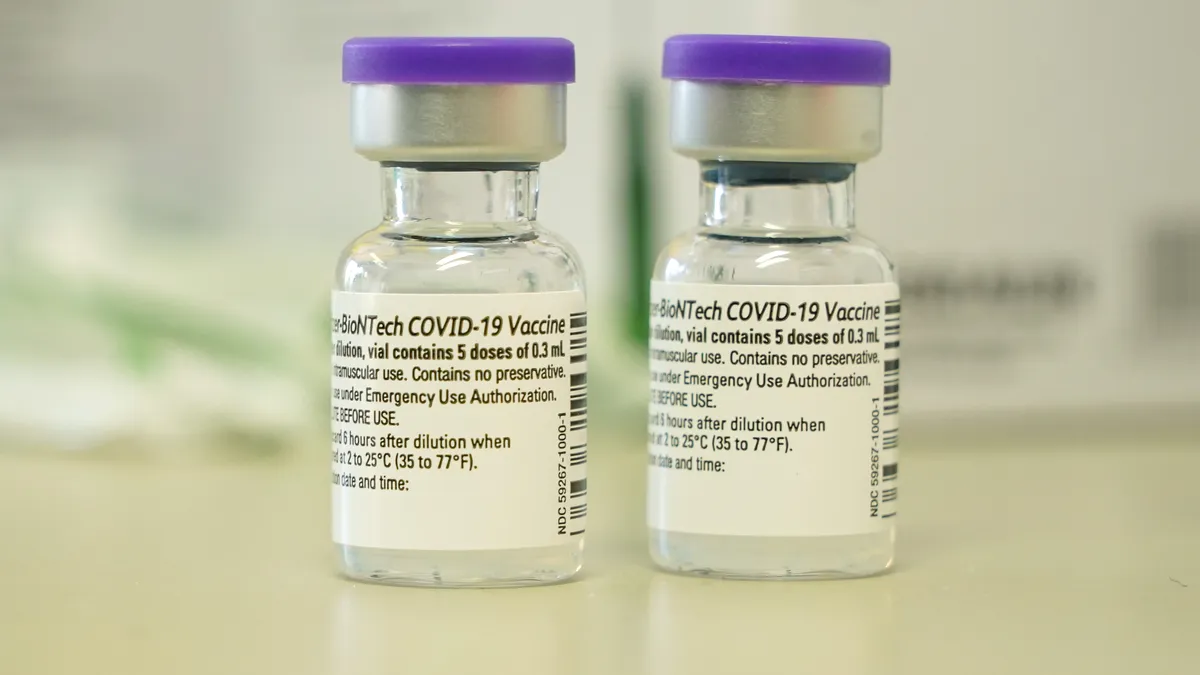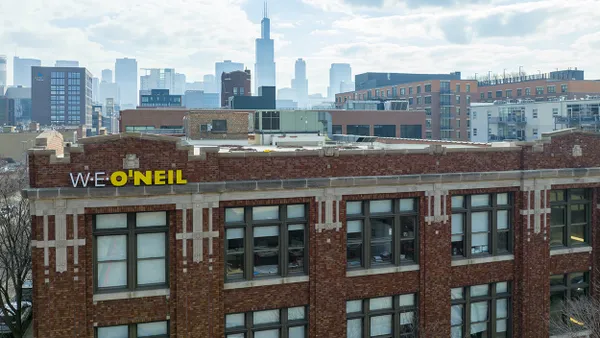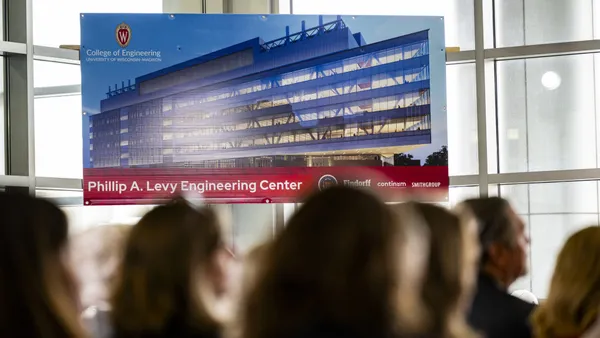Dive Brief:
- COVID-19 vaccine hesitancy varies widely by occupation, and construction workers are the most hesitant to get vaccinated, according to a study from researchers at Carnegie Mellon University and the University of Pittsburgh.
- Nearly half (46.4%) of those employed in the construction/extraction occupation category that responded to the survey said they would probably or definitely choose not to get vaccinated if offered a COVID-19 vaccine. Slightly fewer workers (42.6%) in the installation/maintenance/repair categories said the same.
- Major causes of vaccine hesitancy found by the study include concerns about side effects, a belief that the individual doesn’t need the vaccine, distrust in the government or the vaccines themselves and a preference to wait and see if the vaccine is safe.
Dive Insight:
The study found that overall vaccine hesitancy among all respondents decreased from 27.5% in January to 22.1% in March, indicating the progression of vaccine rollout is leading to increased acceptance, the researchers said. The resistance still concerns medical experts, and the need for more willing vaccine participants is paramount to reaching normalcy, Wendy C. King, associate professor of epidemiology for Pitt’s Graduate School of Public Health, said in a release.
"Vaccine hesitancy is emerging as a key barrier to ending the COVID-19 pandemic," King, who was also the lead author of the study, said. "Identifying occupations with a high rate of COVID-19 vaccine hesitancy and understanding the reasons for hesitancy can help public health practitioners and the health care community target interventions and address concerns to hopefully increase vaccination rates."
Here are the most hesitant occupations to get vaccinated, according to the study:
| Employment category | % Hesitancy |
|---|---|
| Construction and extraction | 46.4% |
| Installation, maintenance, repair | 42.6% |
| Farming, fishing, forestry | 41.2% |
| Transportation and material moving | 34% |
| Production | 32.7% |
| Protective service | 30.3% |
| Building or grounds cleaning/maintenance | 28.4% |
| Military | 27.6% |
| Sales and related | 26.9% |
| Food preparation and service related | 24.6% |
| Personal care and service (not healthcare) | 24.6% |
In a similar study published in February, 53% of construction workers indicated they would get the vaccine when offered to them, among the lowest level of all occupations. The 46% displaying hesitancy in the Carnegie Mellon and Pitt study indicates not much has changed in the way construction workers view vaccines.
A Construction Dive survey last month backs up the high rate of hesitancy as well. It found that around half of unvaccinated contractors planned to remain unvaccinated. More than half of all respondents said they had gotten at least one dose. In the same survey, 93% said their companies were strongly encouraging, though not mandating, the vaccines, and 70% said they thought those in the industry were at high risk for contracting COVID-19. Respondents indicated the high number of workers entering and exiting jobsites as a potential spreader.
Some contractors have weighed incentives for workers hesitant to get the vaccine, while others have made it a requirement to return to work. Additionally, construction trade groups such as Associated Builders and Contractors and the Associated General Contractors of America partnered with the Centers for Disease Control and Prevention to promote vaccines and urge workers to get shots.
The weeklong vaccine awareness campaign began April 19, meaning if it had an impact on construction worker hesitancy, it would not have been reflected in the study, which concluded in March.














